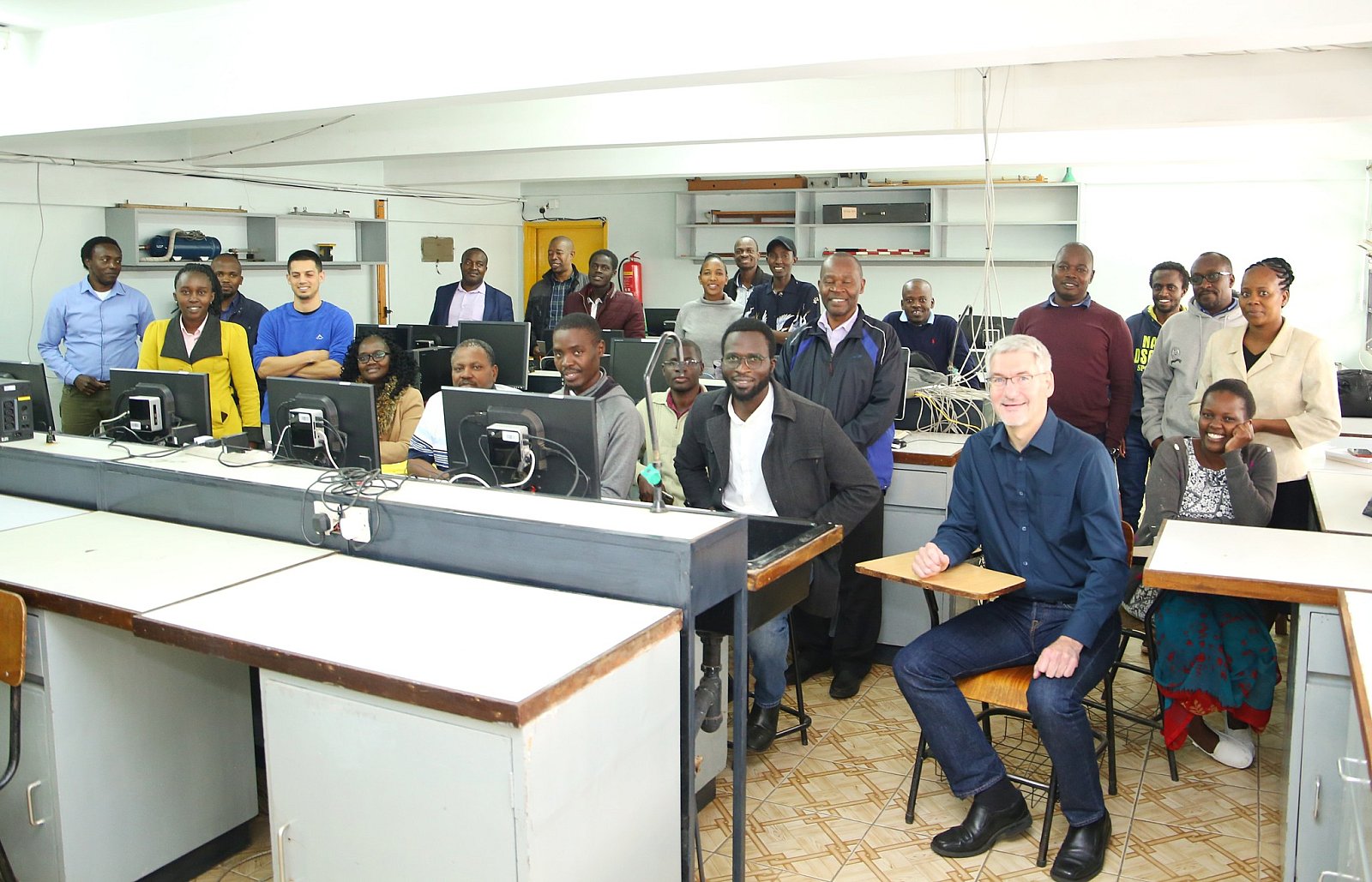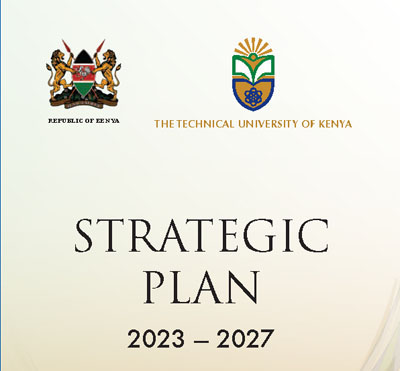The Center for Higher Performance Computing (CHPC) has assured TU-K researchers that they will continue enjoying access to high profile computing resources to enable them conduct more focused research. This was disclosed by Werner Janse Van Rensburg, the CHPC Research Manager when he spoke to scientists and engineers when he visited the university in July 2023.
The objective of the outreach visit was to meet the researchers who use their resources, receive feedback on user experiences to the resources provided, understand some of the research activities being conducted as well as gather user needs.
CHPC is an organisation that is funded by South Africa’s Government, Department of Science and Innovation (DSI). It is part of the Square Kilometer Array Project (SKA) which Kenya is involved in and because of this partnership, Kenyan researchers have access to resources at CHPC.
“The SKA project is a multi-national project that involves radio astronomy research. Many countries are a part of it with South Africa and Australia hosting the two largest radio telescope arrays,” said Mr. Rensburg.
“Kenya is one of the eight countries involved in the project and this is the basis on which we are collaborating,” he added.
CHPC has been keen on supporting researchers to conduct more focused research that involve modeling and simulation by giving them access to high-speed, high-bandwidth connectivity, and the effective curation of a variety of notably large and critical databases.
“When it comes to this project, there is a tremendous need for computer and data analysis and we almost recognise that the computational capacity of researchers need to be developed so that more countries can be part of this,” said Rensburg.
He encouraged other researchers even those not studying astronomy to use CHPC resources. This will be achieved by forming groups and identifying a Principal Investigator to register and those under their teams will have access to their resources.
“This has been going on for many years and Kenya is particularly doing well, currently we have 27 principal investigators who are actively using our resources,” he added.
Researchers from the university (TU-K) are a prominent group making use of the computing resources and CHPC is pleased with the momentum.
One group, led by their Principal Investigator, Prof. George Amollo, from the School of Physics and Earth Sciences, is using CHPC resources by employing basic principles of physics to predict material properties.
“This is a Kenyan special interest group that conducts research studies on Computational Modeling and Materials Science, said Prof Amollo.
“This research will support a multidisciplinary approach to the existing potential of studying complex physical, chemical and biological systems, among others, that characterizes current and emerging challenges in our society,” Prof. Amollo added.
Dr. Michael Atambo, a Lecturer in the school of Physics and Earth Sciences added that the support provided by CHPC was key in making their predictions.
“We want to predict how the material interacts with light, how hard the material is, its structure, and electronic properties,” said Dr. Atambo.
CHPC was encouraged to support more young researchers to advance their skills and experiences to carry on with the research work in future.



